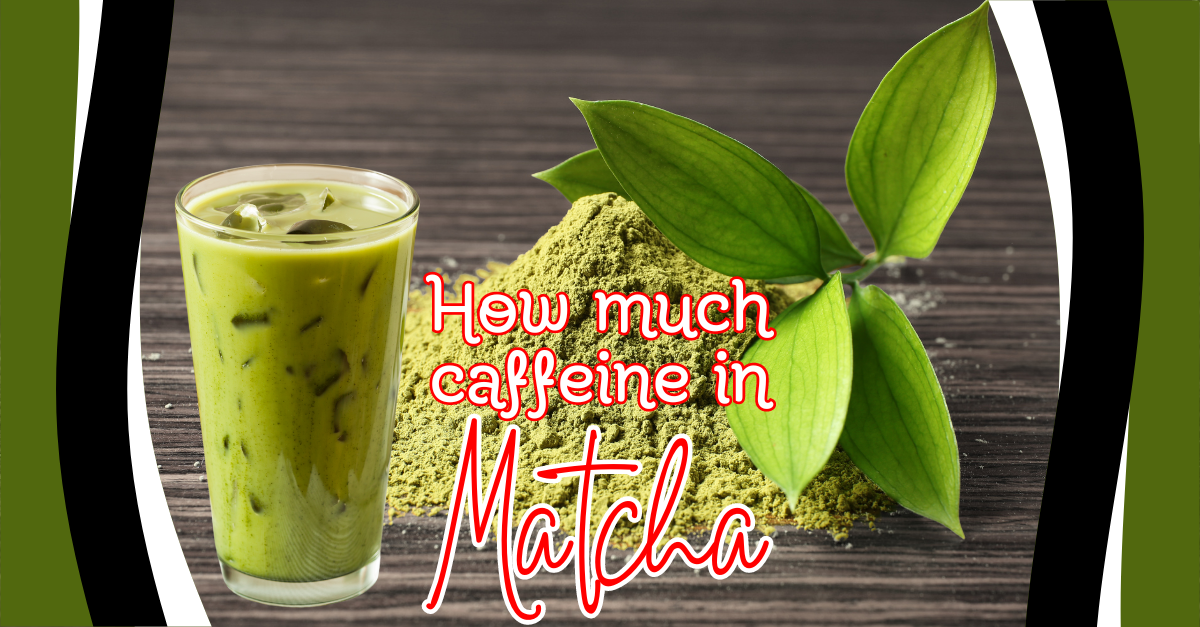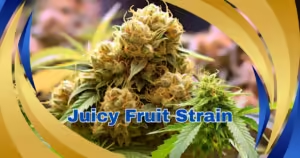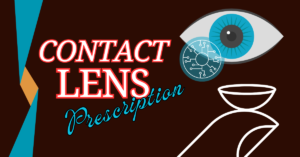Matcha, a finely ground powder made from specially grown green tea leaves, has taken the world by storm for its unique flavor and numerous health benefits. However, one of the most common questions people ask is, “how much caffeine in matcha?” Matcha contains a moderate amount of caffeine, but its effects are different from other caffeinated beverages like coffee. This blog post will explore how much caffeine in matcha, compare it to other drinks, and examine its health benefits for a balanced, jitter-free energy boost.
How Much Caffeine in Matcha Compared to Coffee?
One of the primary reasons people consume caffeinated beverages is to get an energy boost. But how does matcha stack up against coffee in terms of how much caffeine in matcha?
- Matcha Caffeine Content: On average, one teaspoon (2 grams) of matcha contains about 64 mg of caffeine. This amount of caffeine is often compared to a cup of brewed coffee, which typically contains between 80 and 100 mg of caffeine per 8 ounces. So, how much caffeine in matcha compared to coffee? While matcha has slightly less caffeine, it offers a unique advantage: its effects last longer and are more balanced, thanks to the presence of L-theanine, an amino acid that promotes calmness and focus.
- Coffee Caffeine Content: A standard 8-ounce cup of brewed coffee can contain anywhere from 95 to 100 mg of caffeine, while espresso-based drinks can have even more. So, compared to how much caffeine in matcha, coffee tends to have higher concentrations of caffeine. However, coffee often leads to jitters and energy crashes, while matcha provides a more sustained and balanced boost due to the unique combination of caffeine and L-theanine.
While matcha may contain slightly less caffeine than coffee, its effects are milder and longer-lasting due to the presence of L-theanine, an amino acid that promotes calmness and focus. Unlike coffee, which can cause jitters and energy crashes, matcha provides a more balanced and sustained energy boost.
How Much Caffeine in Matcha vs. Green Tea?
Another popular comparison people often ask about is how much caffeine in matcha versus green tea. Both matcha and traditional green tea come from the same plant, Camellia sinensis, but the way they are processed makes a significant difference in their caffeine content.
- Caffeine in Matcha vs Green Tea: A cup of brewed green tea contains around 28 mg of caffeine per 8-ounce serving, much lower than matcha. The reason for the higher caffeine content in matcha is that you are consuming the entire tea leaf, whereas, with green tea, you are only drinking the water infused with the leaves.
- Why the Difference? Matcha is made by grinding whole tea leaves, giving it a more concentrated dose of nutrients and caffeine. In contrast, green tea leaves are steeped, and much of the caffeine remains in the leaves.
Factors That Determine How Much Caffeine in Matcha
The caffeine content in matcha is not fixed and can vary depending on several factors. Understanding these can help you control your intake and choose the right matcha for your needs.
Quality of Matcha and Its Impact on Caffeine
Not all matcha is created equal. The quality of matcha plays a significant role in its caffeine levels.
- Ceremonial Grade Matcha: This is the highest quality and has a richer flavor and more caffeine. It is made from the youngest tea leaves, which tend to have a higher concentration of caffeine.
- Culinary Grade Matcha: Often used in recipes like lattes or desserts, culinary-grade matcha has slightly lower caffeine content. However, it still provides a good boost of energy.
Serving Size and How Much Caffeine in Matcha You Consume
The serving size you choose significantly influences how much caffeine in matcha you consume.
- Standard Serving Size: A typical serving size of matcha is 1 teaspoon (about 2 grams), which contains approximately 64 mg of caffeine.
- Larger Servings: If you use more than 1 teaspoon, such as in a matcha latte, the caffeine content will increase accordingly. For example, 2 teaspoons of matcha will contain roughly 128 mg of caffeine.
Health Benefits of Caffeine in Matcha
The caffeine in matcha offers more than just an energy boost. Here are some ways in which how much caffeine in matcha can positively affect your health:
- Improved Focus and Mental Clarity: The combination of caffeine and L-theanine in matcha creates a balanced, calm focus. Unlike coffee, which can lead to anxiety, matcha’s L-theanine content promotes relaxation while keeping you alert.
- Boosts Metabolism: Caffeine in matcha has been shown to enhance fat oxidation and increase your body’s ability to burn calories. This makes matcha a popular choice for those looking to boost metabolism.
- Rich in Antioxidants: Matcha contains high levels of antioxidants, particularly catechins, which help fight free radicals and support overall health. The caffeine aids in absorbing these antioxidants more efficiently.
Improved Focus and Mental Clarity: The combination of caffeine and L-theanine in matcha creates a balanced, calm focus. According to Healthline, matcha’s L-theanine content helps promote relaxation while keeping you alert.
Does Matcha Provide a Jitter-Free Caffeine Boost?
One of the unique aspects of matcha is that it provides a jitter-free caffeine boost. This is due to the presence of L-theanine, which moderates the effects of caffeine. Unlike coffee, which can cause energy spikes followed by crashes, matcha delivers a steady release of energy. This makes matcha an excellent choice for people sensitive to caffeine or those who want a smoother, longer-lasting effect.
Looking for more fascinating reads? Check out 5 Surprising Facts About Vienna Black You Didn’t Know and uncover the intriguing details behind this trending sensation!
How Much Matcha Should You Drink for a Safe Caffeine Intake?
Knowing how much caffeine in matcha is key to determining how much matcha you can safely drink each day. Most health experts recommend limiting your total caffeine intake to around 400 mg per day. Here’s how matcha fits into that guideline:
- One Cup per Day: A standard serving of matcha (1 teaspoon or 2 grams) contains about 64 mg of caffeine, which means you can safely enjoy up to six cups per day while staying within the recommended daily caffeine limit.
- Two to Three Cups for Moderate Intake: If you prefer a moderate amount of caffeine, two to three cups of matcha will give you a steady energy boost without exceeding 200 mg of caffeine, making it a great alternative to multiple cups of coffee.
Matcha vs Energy Drinks: Which is a Better Source of Caffeine?
When comparing matcha to energy drinks, it’s important to consider not just the caffeine content but also the overall effects on your body. Energy drinks often contain large amounts of caffeine, sugar, and artificial additives, which can lead to quick energy spikes followed by crashes. Let’s explore how matcha holds up against these popular beverages.
- Caffeine Content Comparison: Energy drinks often contain between 80 to 200 mg of caffeine per serving, which is higher than how much caffeine in matcha. However, energy drinks usually contain artificial additives and sugar, which can lead to quick spikes and crashes in energy levels. Matcha provides a cleaner, more natural source of caffeine that’s easier on the body.
- Health Benefits: While energy drinks offer a quick energy fix, they are often associated with negative side effects like increased heart rate and blood pressure due to high caffeine and sugar levels. In contrast, matcha provides a more natural energy source along with numerous health benefits, including antioxidants and stress reduction, thanks to its L-theanine content.
How Matcha is Made: Does Processing Affect Caffeine Levels?
The unique process of making matcha significantly impacts its nutritional content, including caffeine levels. Matcha is made from shade-grown green tea leaves, which increases the production of chlorophyll and amino acids like L-theanine. This shading process also leads to higher caffeine levels compared to regular green tea.
- Stone-Ground Leaves: After harvest, the leaves are carefully steamed, dried, and ground into a fine powder using traditional stone mills. Because you consume the entire leaf when drinking matcha, you receive all its nutrients and caffeine, unlike brewed tea where some components are discarded.
- Impact on Caffeine Levels: The meticulous production process ensures matcha retains higher caffeine levels than many other teas, while also delivering a smoother, more balanced energy experience.
FAQs About Caffeine in Matcha
1. How much caffeine is in a cup of matcha?
A typical serving of matcha, which is 1 teaspoon (2 grams), contains about 64 mg of caffeine per cup.
2. Does matcha have more caffeine than coffee?
No, matcha generally has less caffeine than coffee. One cup of matcha contains around 64 mg of caffeine, while a standard 8-ounce cup of coffee can contain 95 mg or more.
3. Is matcha high in caffeine?
Matcha has a moderate amount of caffeine compared to coffee and energy drinks. It provides a balanced boost without causing jitters or crashes.
4. How does matcha caffeine affect energy levels?
The caffeine in matcha, combined with L-theanine, provides sustained energy without the spikes and crashes often associated with coffee.
5. Can matcha replace my morning coffee?
Yes, matcha can be a great replacement for coffee. It provides a gentler, longer-lasting energy boost, and many people prefer it for its lower risk of jittery side effects.
6. How does the caffeine in matcha affect sleep?
Like any caffeine, consuming matcha too close to bedtime can interfere with sleep. It’s best to enjoy matcha earlier in the day to avoid disrupting your sleep cycle.
7. Is matcha suitable for people sensitive to caffeine?
Yes, matcha is often better tolerated by people sensitive to caffeine because of its balanced effects and the calming influence of L-theanine.
8. Can I drink matcha every day?
Yes, matcha can be enjoyed daily, but it’s important to monitor your overall caffeine intake to stay within safe limits.
9. Does matcha contain more caffeine than energy drinks?
Most energy drinks contain significantly more caffeine than matcha, often exceeding 100 mg per serving. Matcha provides a more natural, sustainable source of energy.
10. What type of matcha has the most caffeine?
Ceremonial grade matcha, made from younger leaves, tends to have the highest caffeine content compared to culinary grade matcha.
Conclusion: Final Thoughts on Caffeine Content in Matcha
Understanding how much caffeine in matcha is essential for getting the most out of this superfood. With around 64 mg of caffeine per serving, it offers a moderate dose that is both effective and gentle, thanks to the presence of L-theanine. Whether you’re looking for a coffee alternative or simply want to enjoy the health benefits of this antioxidant-rich tea, matcha can be a perfect choice.
By understanding the factors that influence matcha’s caffeine content and how it compares to other beverages, you can enjoy it safely while reaping its many benefits.Whether you’re looking for an alternative to coffee or a more natural source of energy than energy drinks, matcha is a great choice.

Joseph Bush is a seasoned writer and researcher with over 7 years of experience covering a wide range of general topics, from lifestyle and technology to business and current events. He is dedicated to producing fact-checked, reader-friendly content that informs, engages, and empowers readers.
Throughout his career, Joseph has followed strict editorial guidelines, relied on reputable sources, and ensured every article meets the highest standards of accuracy and clarity. His expertise spans multiple fields, allowing him to explain complex topics in a way that’s easy to understand.
Passionate about continuous learning, Joseph stays updated on industry trends and best practices to deliver trustworthy, well-rounded insights. Readers can rely on his work for its credibility, depth, and real-world relevance.




